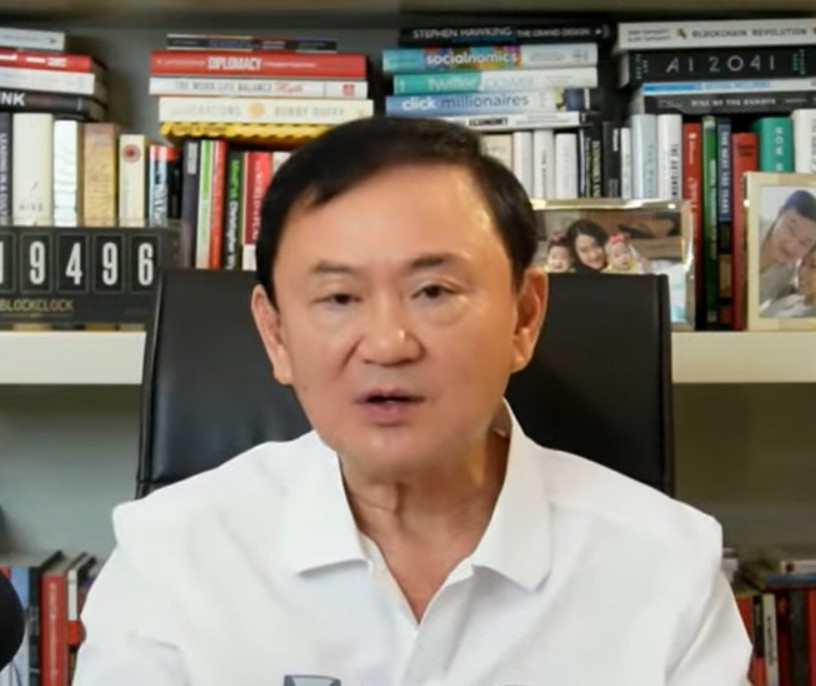Thaksin Shinawatra, the former prime minister of Thailand who was convicted of corruption and abuse of power, has been released on parole after spending six months in a police hospital. Thaksin, who returned to Thailand last year after 15 years in exile, was greeted by his daughter and supporters as he left the hospital on Sunday.
Thaksin’s Return and Conviction
Thaksin, 74, was the prime minister of Thailand from 2001 to 2006, when he was ousted by a military coup. He fled the country in 2008, after being sentenced in absentia to two years in prison for violating conflict of interest laws. He also faced other charges of corruption, tax evasion, and lese majeste, or insulting the monarchy.

Thaksin, a billionaire tycoon, was popular among the rural poor for his populist policies, but was hated by the urban elite and the royalist establishment, who accused him of being corrupt, authoritarian, and disloyal to the king. His supporters and opponents have clashed in several rounds of violent protests and coups, which have polarized and destabilized the country.
Thaksin made a surprise return to Thailand in August 2020, saying that he wanted to serve his jail time and clear his name. He was arrested at the airport and taken to a prison in Bangkok, where he spent one night before being transferred to a police hospital, citing health problems. He suffered from high blood pressure, chest pain, and a shoulder injury.
In September 2020, King Maha Vajiralongkorn granted Thaksin a royal pardon, reducing his prison term from eight years to one year. The pardon was seen as a gesture of reconciliation and goodwill by the king, who had ascended the throne in 2016 after the death of his father, King Bhumibol Adulyadej, who had a tense relationship with Thaksin.
Thaksin’s Release and Reaction
Thaksin was eligible for parole after serving six months of his reduced sentence, due to his age and health condition. He completed the parole procedures on Sunday and was released from the police hospital, where he had been under tight security and surveillance.
Thaksin was seen wearing a green shirt and a sling on his arm, sitting next to his daughter, Paetongtarn Shinawatra, who is the leader of the ruling Pheu Thai party, which is loyal to Thaksin. They were escorted by a convoy of vehicles to Thaksin’s mansion in Bangkok, where they were welcomed by a crowd of supporters and media.
Paetongtarn posted a photo of her and her father on Instagram, with a caption that read: “Thaksin has arrived home, hope he will have good health.” She also thanked the king, the government, and the people for their kindness and support.
Thaksin’s lawyer, Winyat Chartmontri, told Reuters that Thaksin had been formally released and that he was in good spirits. He did not say whether Thaksin was subject to any conditions or restrictions, such as monitoring or travel bans.
Thaksin’s Future and Impact
Thaksin’s release on parole has raised questions and speculations about his future and his impact on Thai politics and society. Thaksin has said that he has retired from politics and that he wants to live peacefully in his homeland. However, some analysts and observers doubt his sincerity and suspect that he still has ambitions and influence.
Thaksin’s family and allies still control the Pheu Thai party, which won the last general election in 2019, but was unable to form a government due to a new constitution that favored the military-backed party, Palang Pracharath. The current prime minister, Prayut Chan-o-cha, is a former army chief who led the coup that toppled Thaksin’s sister, Yingluck Shinawatra, in 2014.
Thaksin’s release on parole could also affect the ongoing pro-democracy protests, which have been demanding the resignation of Prayut, the reform of the monarchy, and the rewriting of the constitution. The protesters, mostly young and urban, have been critical of both the military and the monarchy, but also of Thaksin and his legacy. They have called for a new political system that is more democratic, inclusive, and accountable.
Thaksin’s release on parole could also have implications for Thailand’s relations with other countries, especially the United States and China. Thaksin has been accused of being too close to China, which has been expanding its economic and strategic influence in Southeast Asia. The United States, on the other hand, has been supportive of Thailand’s democratic transition and human rights, but has also been wary of Thaksin’s populism and corruption.








